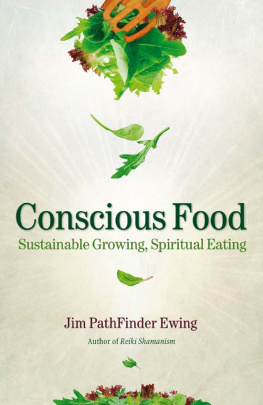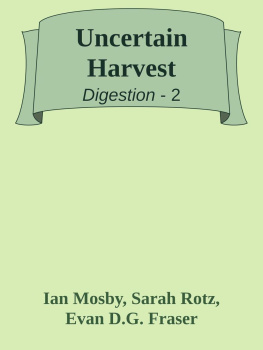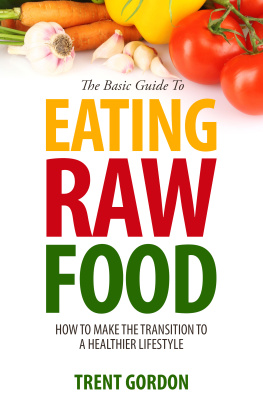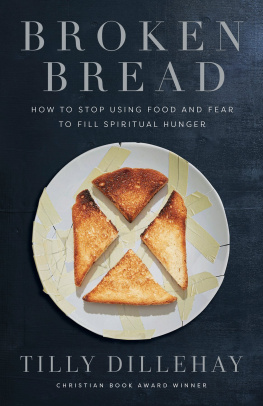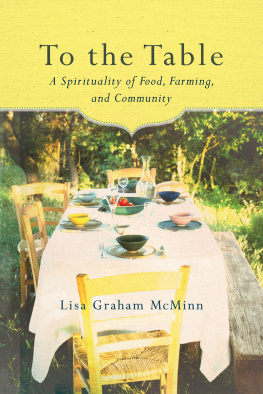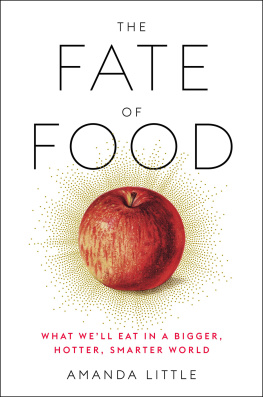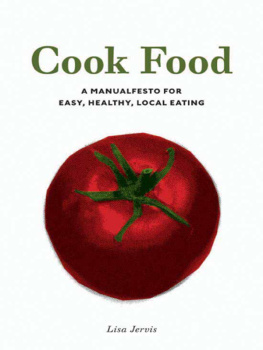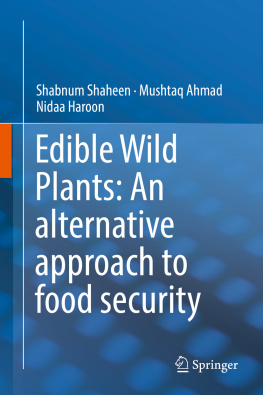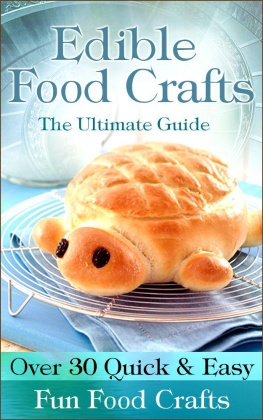


Jim PathFinder Ewing 2012
The right of Jim PathFinder Ewing to be identified as the author of this work has been asserted by him in accordance with the Copyright, Designs and Patents Act 1998.
Published in 2012 by Findhorn Press, Scotland
ISBN 978-1-84409-596-4
All rights reserved.
The contents of this book may not be reproduced in any form, except for short extracts for quotation or review, without the written permission of the publisher.
A CIP record for this title is available from the British Library.
Edited by Nicky Leach
Cover and Interior design by Damian Keenan
Printed and bound in the US
1 2 3 4 5 6 7 8 9 17 16 15 14 13 12
Published by
Findhorn Press
117-121 High Street,
Forres IV36 1AB,
Scotland, UK
t +44 (0)1309 690582
f +44 (0)131 777 2711
e
www.findhornpress.com
Creator bestows so many gifts
upon the world.
How wonderful that we are able to give
thanks in return!
In our times, there are matters of Spirit and matters of worldly things.
But where do worldly things come from, if not from Spirit?
Let us allow Spirit and matter to be united in our consciousness, and see the wholeness of life.

Contents
Chapter One
Edible Prayers: A Brief, Selective History of Food and Spirit
Chapter Two
Postmodern Organics: A New Science for Earth
Chapter Three
The Bio-Cultural Choice: An Edible Revolution
Appendix A:
Accessing Nonordinary Reality
Appendix B:
Glossary
Giving Thanks!
I am most indebted to the many colleagues, teachers, and organizations that have helped me be able to offer insights and understandings. As in previous books, I am thankful for my indigenous teachers, who taught me fundamental ways of looking at the world, to see with my Spirit eyes, along with continued instruction into later life.
I am grateful for the members and officers of various nonprofits over the past 30 years, who have allowed me to serve as a volunteer in executive capacities. With regard to the subject matter of this book, I am particularly grateful for the work I have been able to do with the whole foods and organic grocery business, and organizations concentrating on wildlife, ecology, agriculture, conservation, and sustainability issues. They include the Mississippi Wildlife Federation, for which I was honored to serve as editor of its magazine for several years, a role that allowed me to learn about conservation issues and the various public interest groups involved in the environmental movement; Ducks Unlimited, which, during the time I served on its state board and as editor of its publications for six years, allowed me to learn the ins and outs of congressional Farm Bills for managing agricultural acreages and wetlands; Rainbow Natural Grocery Cooperative, where I served as vice president for the board of directors and on the executive committee, learning the hard lessons of running a million-dollar-a-year organic grocery business; Gaining Ground Sustainability Institute of Mississippi, a statewide educational outreach nonprofit, focused on improving poverty, education, agriculture, health, and the environment, where I served on the board of directors; the Mississippi Urban Forest Council, where I served on the board of directors helping to make cities green and promoting edible forests; and the Mississippi Fruit & Vegetable Growers Association, the states small farm trade organization, where I served as president. My experiences with these three latter organizations taught me important lessons about the vital issues of growers and the academic disciplines and current issues of todays food scene. In addition, my current service on the board of Certified Naturally Grown, the grassroots alternative to certified organic for small farmers, ranchers, and beekeepers, has given me an understanding of direct marketing in agriculture at the national level, for which I am grateful.
I owe a huge debt of gratitude to Ronnie Agnew, former executive editor of The Clarion-Ledger in Jackson, Mississippi, and now executive director of Mississippi Public Broadcasting, for encouraging me to write a weekly column on organic food, farming, and gardening. The column developed a large and enthusiastic following and allowed me to test my ideas and learn from the expertsthe readers and farmers, eaters and gardeners across the state of Mississippi and, through the Internet, the world. Throughout, I am grateful for my 35-plus years as a journalist for newspapers in Tennessee and Mississippi, covering all aspects of news and farming, ranching and dairying, and people, places, and things, and learning how to turn objective reality out there into words in print.
Im grateful for the hundreds of students and clients Ive worked with over the years, who have taught me so much about energy medicine, the mind, and the heart, as well as the readers of my books, who encourage me to continue writing by freely offering me their gratitude, interest, and support.
My list of acknowledgments wouldnt be complete without a nod to my late father, James Ewing, who grew up on a farm himself, the product of generations of farmers in America since 1734, and before that for untold generations in Scotland. He taught me to feel, smell, and taste soil to determine its pH and qualitya type of soil testing that is as enduring as people living intimately with the earth.
I wish to offer gratitude also to my mother, Alice Ewing, under whose watchful gaze I, as a boy, spent endless hours digging, pruning, and tending her prize-winning rose bushes. Among many lessons, I learned that ones goals are not won without laborand perhaps, a few drops of blood and tears from hidden thorns along the way.
And, of course, Im most indebted to my wife, Annette, who serves as my editor, companion, and friend. Too often, she does the lions share of work in our little ShooFly Farm, happily toiling in the hot sun while I sit in the air-conditioned indoors writing these books!
In all ways, she is truly a blessing in my life, and Im grateful to be on this Earth walk beside her.
Preface
I n your hands is the sixth book in the PathFinder series. These books deal with concepts variously called spiritual ecology, eco-spirituality, and environmental shamanism; together, they introduce a series of tools that can help us reconnect to our natural selves.
Each of the first five books explores different facets of a way of healing, health, and wholeness and their applications to daily life.
The first three books constitute a trilogy of people, places, and things in the shamanic way of viewing the world and all beings. The fourth book, Reiki Shamanism: A Guide to Out of Body Healing, combines Reiki with shamanism, and the fifth book, Dreams of the Reiki Shaman: Expanding Your Healing Power, builds upon that foundation and incorporates student input and personal experience in the perception of nonordinary reality, not limited to the shamanic journey.
Next page
